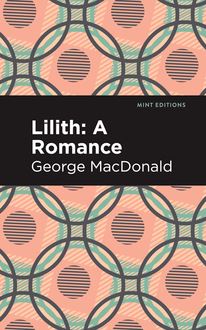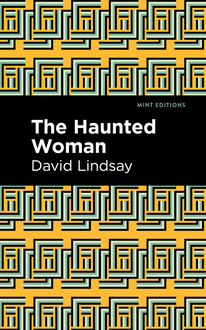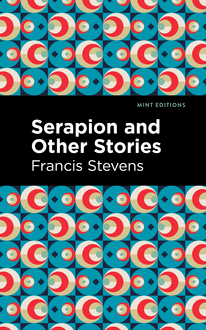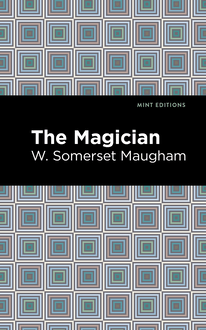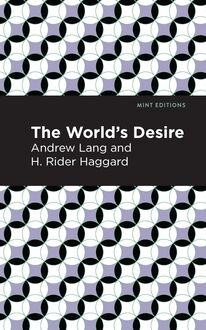-
 Univers
Univers
-
 Ebooks
Ebooks
-
 Livres audio
Livres audio
-
 Presse
Presse
-
 Podcasts
Podcasts
-
 BD
BD
-
 Documents
Documents
-
- Cours
- Révisions
- Ressources pédagogiques
- Sciences de l’éducation
- Manuels scolaires
- Langues
- Travaux de classe
- Annales de BEP
- Etudes supérieures
- Maternelle et primaire
- Fiches de lecture
- Orientation scolaire
- Méthodologie
- Corrigés de devoir
- Annales d’examens et concours
- Annales du bac
- Annales du brevet
- Rapports de stage
La lecture à portée de main
Vous pourrez modifier la taille du texte de cet ouvrage
Découvre YouScribe en t'inscrivant gratuitement
Je m'inscrisDécouvre YouScribe en t'inscrivant gratuitement
Je m'inscrisEn savoir plus
Vous pourrez modifier la taille du texte de cet ouvrage
En savoir plus

Description
When young Allan Quatermain, a boy who would later be known for his heroic adventures, saves a young girl named Stella from a fire, they become quick friends. However, when Stella’s mother leaves her daughter and husband for a new life, Stella’s father is so ashamed that he moves them away into the wilderness. Upset, but too young to contest it, Stella and Allan move on and lose touch. Growing up in both England and South Africa, Allan experiences a myriad of adventures, including duel witch doctors, challenging hunts, and tragic deaths. One day, after a serious accident leaves Allan badly wounded, he and Stella are serendipitously reunited. Able to return the favor from childhood, Stella saves Allan, nursing him back to health and fostering a new relationship. Unwilling to lose touch again, Allan and Stella stay together, their relationship evolving and adapting as they grow together and go on adventures. However, as they remain in a region of unpredictable danger, the couple’s life and relationship are tested by fate, causing conflicts bigger than anything they had ever faced before.
The origins and backstory of H. Rider Haggard’s reoccurring character, Allan Quatermain, is explored and revealed in Allan’s Wife. Elaborating on details mentioned in other novels featuring Quatermain, Allan’s Wife explores Quatermain’s early life, the fate of his parents, and the love story between he and Stella. Featuring heart-pounding action, sweet sentiment, and wonderful adventures, Allan’s Wife is a compelling work of short fiction. Written in imaginative and simple prose, this H. Rider Haggard novel is accessible to all ages. First published in 1889, Allan’s Wife has remained fresh and exciting, appealing to readers’ sense of adventure and sentiment.
This edition of Allan’s Wife by H. Rider Haggard features a striking new cover design and is printed in a font that is both modern and readable. With these accommodations, Allan’s Wife caters to a contemporary audience while preserving the original innovation and adventure of H. Rider Haggard’s work.
Sujets
Informations
| Publié par | Mint Editions |
| Date de parution | 09 mars 2021 |
| Nombre de lectures | 0 |
| EAN13 | 9781513278056 |
| Langue | English |
| Poids de l'ouvrage | 2 Mo |
Informations légales : prix de location à la page 0,0400€. Cette information est donnée uniquement à titre indicatif conformément à la législation en vigueur.
Extrait
Allan’s Wife
H. Rider Haggard
Allan’s Wife was first published in 1889.
This edition published by Mint Editions 2021.
ISBN 9781513277646 | E-ISBN 9781513278056
Published by Mint Editions®
minteditionbooks .com
Publishing Director: Jennifer Newens
Design & Production: Rachel Lopez Metzger
Project Manager: Micaela Clark
Typesetting: Westchester Publishing Services
C ONTENTS I. E ARLY D AYS II. T HE F IRE - FIGHT III. N ORTHWARDS IV. T HE Z ULU I MPI V. T HE E ND OF THE L AAGER VI. S TELLA VII. T HE B ABOON - WOMAN VIII. T HE M ARBLE K RAALS IX. “L ET U S G O I N , A LLAN !” X. H ENDRIKA P LOTS E VIL XI. G ONE ! XII. T HE M AGIC OF I NDABA - ZIMBI XIII. W HAT H APPENED TO S TELLA XIV. F IFTEEN Y EARS A FTER
I
E ARLY D AYS
I t may be remembered that in the last pages of his diary, written just before his death, Allan Quatermain makes allusion to his long dead wife, stating that he has written of her fully elsewhere.
When his death was known, his papers were handed to myself as his literary executor. Among them I found two manuscripts, of which the following is one. The other is simply a record of events wherein Mr. Quatermain was not personally concerned—a Zulu novel, the story of which was told to him by the hero many years after the tragedy had occurred. But with this we have nothing to do at present.
I HAVE OFTEN THOUGHT (M R . Q UATERMAIN ’ S manuscript begins) that I would set down on paper the events connected with my marriage, and the loss of my most dear wife. Many years have now passed since that event, and to some extent time has softened the old grief, though Heaven knows it is still keen enough. On two or three occasions I have even begun the record. Once I gave it up because the writing of it depressed me beyond bearing, once because I was suddenly called away upon a journey, and the third time because a Kaffir boy found my manuscript convenient for lighting the kitchen fire.
But now that I am at leisure here in England, I will make a fourth attempt. If I succeed, the story may serve to interest some one in after years when I am dead and gone; before that I should not wish it to be published. It is a wild tale enough, and suggests some curious reflections.
I am the son of a missionary. My father was originally curate in charge of a small parish in Oxfordshire. He had already been some ten years married to my dear mother when he went there, and he had four children, of whom I was the youngest. I remember faintly the place where we lived. It was an ancient long grey house, facing the road. There was a very large tree of some sort in the garden. It was hollow, and we children used to play about inside of it, and knock knots of wood from the rough bark. We all slept in a kind of attic, and my mother always came and kissed us when we were in bed. I used to wake up and see her bending over me, a candle in her hand. There was a curious kind of pole projecting from the wall over my bed. Once I was dreadfully frightened because my eldest brother made me hang to it by my hands. That is all I remember about our old home. It has been pulled down long ago, or I would journey there to see it.
A little further down the road was a large house with big iron gates to it, and on the top of the gate pillars sat two stone lions, which were so hideous that I was afraid of them. Perhaps this sentiment was prophetic. One could see the house by peeping through the bars of the gates. It was a gloomy-looking place, with a tall yew hedge round it; but in the summer-time some flowers grew about the sun-dial in the grass plat. This house was called the Hall, and Squire Carson lived there. One Christmas—it must have been the Christmas before my father emigrated, or I should not remember it—we children went to a Christmas-tree festivity at the Hall. There was a great party there, and footmen wearing red waistcoats stood at the door. In the dining-room, which was panelled with black oak, was the Christmas-tree. Squire Carson stood in front of it. He was a tall, dark man, very quiet in his manners, and he wore a bunch of seals on his waistcoat. We used to think him old, but as a matter of fact he was then not more than forty. He had been, as I afterwards learned, a great traveller in his youth, and some six or seven years before this date he married a lady who was half a Spaniard—a papist, my father called her. I can remember her well. She was small and very pretty, with a rounded figure, large black eyes, and glittering teeth. She spoke English with a curious accent. I suppose that I must have been a funny child to look at, and I know that my hair stood up on my head then as it does now, for I still have a sketch of myself that my mother made of me, in which this peculiarity is strongly marked. On this occasion of the Christmas-tree I remember that Mrs. Carson turned to a tall, foreign-looking gentleman who stood beside her, and, tapping him affectionately on the shoulder with her gold eye-glasses, said—
“Look, cousin—look at that droll little boy with the big brown eyes; his hair is like a—what you call him?—scrubbing-brush. Oh, what a droll little boy!”
The tall gentleman pulled at his moustache, and, taking Mrs. Carson’s hand in his, began to smooth my hair down with it till I heard her whisper—
“Leave go my hand, cousin. Thomas is looking like—like the thunderstorm.”
Thomas was the name of Mr. Carson, her husband.
After that I hid myself as well as I could behind a chair, for I was shy, and watched little Stella Carson, who was the squire’s only child, giving the children presents off the tree. She was dressed as Father Christmas, with some soft white stuff round her lovely little face, and she had large dark eyes, which I thought more beautiful than anything I had ever seen. At last it came to my turn to receive a present—oddly enough, considered in the light of future events, it was a large monkey. Stella reached it down from one of the lower boughs of the tree and handed it to me, saying—
“Dat is my Christmas present to you, little Allan Quatermain.”
As she did so her sleeve, which was covered with cotton wool, spangled over with something that shone, touched one of the tapers and caught fire—how I do not know—and the flame ran up her arm towards her throat. She stood quite still. I suppose that she was paralysed with fear; and the ladies who were near screamed very loud, but did nothing. Then some impulse seized me—perhaps instinct would be a better word to use, considering my age. I threw myself upon the child, and, beating at the fire with my hands, mercifully succeeded in extinguishing it before it really got hold. My wrists were so badly scorched that they had to be wrapped up in wool for a long time afterwards, but with the exception of a single burn upon her throat, little Stella Carson was not much hurt.
This is all that I remember about the Christmas-tree at the Hall. What happened afterwards is lost to me, but to this day in my sleep I sometimes see little Stella’s sweet face and the stare of terror in her dark eyes as the fire ran up her arm. This, however, is not wonderful, for I had, humanly speaking, saved the life of her who was destined to be my wife.
The next event which I can recall clearly is that my mother and three brothers all fell ill of fever, owing, as I afterwards learned, to the poisoning of our well by some evil-minded person, who threw a dead sheep into it.
It must have been while they were ill that Squire Carson came one day to the vicarage. The weather was still cold, for there was a fire in the study, and I sat before the fire writing letters on a piece of paper with a pencil, while my father walked up and down the room talking to himself. Afterwards I knew that he was praying for the lives of his wife and children. Presently a servant came to the door and said that some one wanted to see him.
“It is the squire, sir,” said the maid, “and he says he particularly wishes to see you.”
“Very well,” answered my father, wearily, and presently Squire Carson came in. His face was white and haggard, and his eyes shone so fiercely that I was afraid of him.
“Forgive me for intruding on you at such a time, Quatermain,” he said, in a hoarse voice, “but to-morrow I leave this place for ever, and I wish to speak to you before I go—indeed, I must speak to you.”
“Shall I send Allan away?” said my father, pointing to me.
“No; let him bide. He will not understand.” Nor, indeed, did I at the time, but I remembered every word, and in after years their meaning grew on me.
“First tell me,” he went on, “how are they?” and he pointed upwards with his thumb.
“My wife and two of the boys are beyond hope,” my father answered, with a groan. “I do not know how it will go with the third. The Lord’s will be done!”
“The Lord’s will be done,” the squire echoed, solemnly. “And now, Quatermain, listen—my wife’s gone.”
“Gone!” my father answered. “Who with?”
“With that foreign cousin of hers. It seems from a letter she left me that she always cared for him, not for me. She married me because she thought me a rich English milord. Now she has run through my property, or most of it, and gone. I don’t know where. Luckily, she did not care to encumber her new career with the child; Stella is left to me.”
“That is what comes of marrying a papist, Carson,” said my father. That was his fault; he was as good and charitable a man as ever lived, but he was bigoted. “What are you going to do—follow her?”
He laughed bitterly in answer.
“Follow her!” he said; “why should I follow her? If I met her I might kill her or him, or both of them, because of the disgrace they have brought upon my child’s name. No, I never want to look upon her face again. I trusted her, I tell you, and she has betrayed me. Let her go and find her fate. But I am going too. I am weary of my life.”
“Surely, Carson, surely,” said my father, “you do not mean—”
“No, no; not that. Death comes soon enough. But I
-
 Univers
Univers
-
 Ebooks
Ebooks
-
 Livres audio
Livres audio
-
 Presse
Presse
-
 Podcasts
Podcasts
-
 BD
BD
-
 Documents
Documents
-
Jeunesse
-
Littérature
-
Ressources professionnelles
-
Santé et bien-être
-
Savoirs
-
Education
-
Loisirs et hobbies
-
Art, musique et cinéma
-
Actualité et débat de société
-
Jeunesse
-
Littérature
-
Ressources professionnelles
-
Santé et bien-être
-
Savoirs
-
Education
-
Loisirs et hobbies
-
Art, musique et cinéma
-
Actualité et débat de société
-
Actualités
-
Lifestyle
-
Presse jeunesse
-
Presse professionnelle
-
Pratique
-
Presse sportive
-
Presse internationale
-
Culture & Médias
-
Action et Aventures
-
Science-fiction et Fantasy
-
Société
-
Jeunesse
-
Littérature
-
Ressources professionnelles
-
Santé et bien-être
-
Savoirs
-
Education
-
Loisirs et hobbies
-
Art, musique et cinéma
-
Actualité et débat de société
- Cours
- Révisions
- Ressources pédagogiques
- Sciences de l’éducation
- Manuels scolaires
- Langues
- Travaux de classe
- Annales de BEP
- Etudes supérieures
- Maternelle et primaire
- Fiches de lecture
- Orientation scolaire
- Méthodologie
- Corrigés de devoir
- Annales d’examens et concours
- Annales du bac
- Annales du brevet
- Rapports de stage
